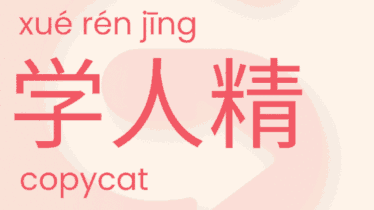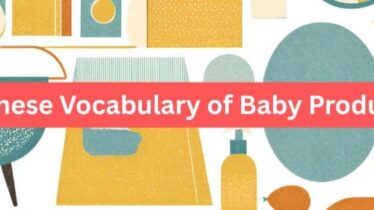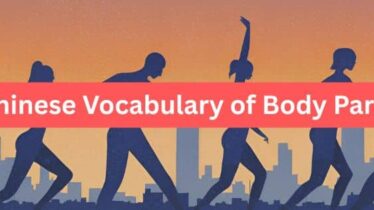Funny Mandarin Chinese words and phrases
Mandarin Chinese is a really interesting and funny ideographic language. Many combinations of language units (Hanzi + pronunciation) often create many interesting language expressions. So with the purpose of making Chinese learning more interesting, here are some funny Mandarin Chinese words and phrases.
Interesting words in Chinese
As we all know, every morpheme in Mandarin Chinese can form different words together with other morphemes to express different meanings. There are such words in Chinese that two morphemes can be used in reverse order to make the meaning of words interesting.
Some words are made up of two words with similar meanings. When you read them upside down, the meaning remains unchanged. for example:
演讲Jiǎngyán, 讲演Yǎnjiǎng, and 觉察Juéchá, 察觉Chájué
‘演讲’ and ‘讲演’ are both “speech”. ‘觉察’ and ‘察觉’ both mean ‘detect’. Although the word order is different, they still have the same meaning.
Some words related to the content are reversed, and the meaning is still similar or related. Such as:
雪白 Xuěbái & 白雪Báixuě
‘白雪’ actually is ‘白色的雪’ means ‘white snow’, while ‘雪白’ is the name of Snow White (from the fairy tale).
少年Shàonián & 年少Niánshào
‘少年’ means teenager and ‘年少’ means young. So we can see that what they mean is relevant.
Sometimes, with the name of some things, if you put it upside down, just shows the purpose of this kind of thing. for example:
门锁Ménsuǒ & 锁门Suǒmén
‘门锁’ is the lock of the door and ‘锁门’ means lock the door.
牙刷Yáshuā & 刷牙Shuāyá
‘牙刷’ is toothbrush and ‘刷牙’ is the verb that means to brush one’s teeth.
However, not all Chinese morphemes can be used upside down, such as:
人名Rénmíng & 名人Míngrén
‘人名’ is your name and ‘名人’ is a famous person.
马上Mǎshàng & 上马Shàngmǎ
‘马上’ means immediately and ‘上马’ is to mount a horse. So here the meaning of these Chinese words is really different.
不 doesn’t always to mean no!
In Chinese, we often use ‘不’ to express negative meaning, such as:
- 我不吃火锅。
- Wǒ bùchī huǒguō.
- I don’t eat hot pot.
So when most foreigners learn Chinese, they feel that ‘不’ means ‘no’. In fact, in some sentences, even if there is 不, there is no negative meaning. For example:
今天Goeast好热闹!
Jīntiān GoEast hǎo rènào!
and:
今天Goeast 好不热闹!
Jīntiān GoEast hǎobú rènào!
Or:
- 大家好高兴!
- Dàjiā hǎo gāoxìng!
and:
- 大家好不高兴!
- Dàjiā hǎobù gāoxìng!
Here, there is ‘no’ in the sentence. These two Chinese sentences here express the same meaning. ‘好热闹’ and ‘好不热闹’ are all means lively. ‘好高兴’ and ‘好不高兴’ means very happy. ‘好不’ deepens the speaker’s tone together, with an exclamatory tone.
Interesting sentences in Chinese
Chinese and Indo-European languages have different ways of expressing meaning. In for instance English, we can turn nouns into verbs, such as “He tabled the motion and chaired the meeting”. Yet in Chinese this is different. A word (or character really) can be used in different positions to produce different meanings. Therefore, there will be many interesting Chinese sentences that foreign learners find difficult to understand. For example:
“这几天天天天气不好。”
Can you guess what it means?
At first glance, we don’t understand what it means. We can only see a lot of ‘days’. In Chinese, ‘天 tiān’ often means ‘one day’ and ‘sky’.
If we separate this sentence, it can be: 这几天|天天|天气|不好。
- 这几天Zhè jǐjiān’ is these days
- ‘天天’ means every day
- ‘天气 Tiānqì’ means the weather
So the sentence is that the weather is bad these days.
There’s another example. A friend in Shanghai wanted to drink milk tea. He told his friends nearby:
我有一点点想点一点一点点喝。
Guess what milk tea he wants to drink?
If you don’t understand, let’s take a “little” look at it.
I want to drink a little bit ‘ 一点点’:
我有一点点|想点|一点|一点点|喝。
- Here ‘有一点点’ means ‘a little bit’
- ‘想点’ is ‘want to order’
- ‘一点点’ is the name of a milk tea brand
Of course, there are many such interesting sentences in Chinese. Because there are many polysyllabic characters in Chinese, that is, a word can have two or more pronunciations, so it is often easy to cause ambiguity and make people difficult to understand.
Last example. Can you segment this sentence? Do you know the pronunciation of ‘行’ here?
- 你要行干一行行一行 一行行行行行? 你要不行干一行不行一行 一行不行行行不行。
- Nǐ yào xíng gàn yī háng háng yīxíng yī háng háng háng háng xíng? Nǐ yào bùxíng gàn yīxíng bùxíng yīxíng yīxíng bù háng háng xíng bùxíng.
- Do you want to do it line by line? Do you want to do it line by line?
Well, that’s it for today’s interesting and funny Mandarin Chinese words and phrases. For more phrases and popular words, head to our YouTube channel for learning Chinese.








